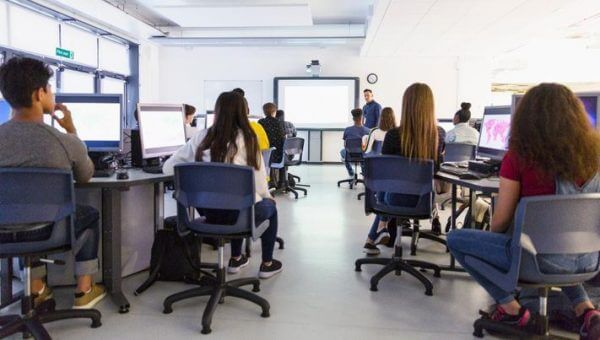I get this question quite often- I run an AI-powered college and career readiness platform, which has lots of automation to make counsellors’, students’, and districts’ workflows a lot more efficient. However, the word “automation” has a very negative connotation in education, more so than in other industries. When you mention automation in a school district (it obviously depends on the culture of the community), it is as if you are not only destroying their entire Maslow’s hierarchy pyramid from the very bottom but also destroying their students’ future by taking away all the jobs. I get where the sentiment comes from.

My answer is a yes and a no. It depends on what your job really is. Technology should change the way we work in a positive way. We all want our students to be in the lead and learn and use cutting edge technology so that when they are in the workforce they can be effective and current. So why not model this type of behaviour as an adult?
It is as simple as this, will you teach your students to do monotonous tasks like data entry or low skilled tasks that can be automated, in hopes that they can eventually add value to society in exchange for a stable pay? I think the answer is no. So why should teachers or counsellors hang on to “jobs” that can be automated instead of focusing on the future and gain the skill sets that machines can’t do? After all, it will be better for our students, if they can derive more value out of each experience they have from a specialized entity. A simple example is that it is way more efficient and error-free to have a computer program handle error checking for a graduation plan, as opposed to having an overworked counsellor go through a stack of papers late at night after a long day.
Now, I’d like to talk about the concept of value, and how that is related to the “no” part of my answer. I don’t think any of our partner districts are really paying for our product. I fundamentally believe that people pay for products and services because of the value they can derive from it. The value of being in an education system extends far beyond the content you learn or the report card you receive. I truly believe in the phrase. “We are all made of our experiences, and whether these experiences are online or offline, human interaction is what powers it.” I would argue that how teachers create, shape and engage students in these experiences is the most important value add. To continue with that course planning example – let the program handle the error checking, while counsellors have meaningful discussions with students about why they’re choosing courses and how that will impact their future. That experience is going to be much more beneficial for the counsellor and the student than checking for graduation requirements ever could.
In short, humans are irreplaceable, but tasks and jobs are automatable. It extends way beyond the education industry, so we all need to learn to adapt and increase and realize our value within this technological evolution.







